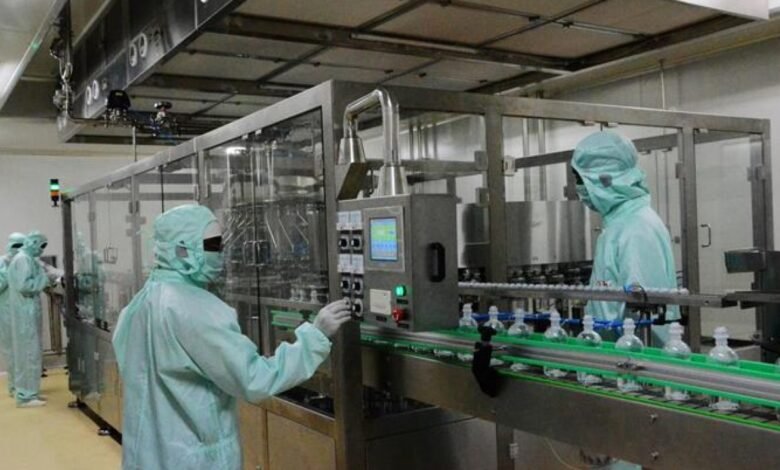
The continent imports almost 95% of its medicines. A major public health problem. In a context of demographic explosion, there is an urgent need to invest in the sector to ensure access to affordable, quality medicines and to put in place the appropriate public policies and public-private partnerships needed to develop the sector’s growth potential in Africa. The recent joint AfDB-IsDB Action Plan is in line with this.
By Bilkiss Mentari
The African Development Bank Group and the Islamic Development Bank signed, on February 16, 2023, a Joint Partnership Action Plan for the development of the pharmaceutical industry in their African member countries. The plan offers a new framework for strengthened cooperation and mutual development priorities, with a strong emphasis on boosting the continent’s health defense systems.
« The plan covers lending to public and private sector projects and pharmaceutical development projects using a regional approach”
“The Joint Action Plan enables both institutions to grow a shared pipeline of bankable projects around key complementary themes to which each institution would bring their comparative advantage. The plan covers lending to public and private sector projects and pharmaceutical development projects using a regional approach,” AfDB said in a statement.
The African Development Bank Group and the Islamic Development Bank will also cooperate on the organization of a global Pharmaceutical Business Forum in May 2023 at the General Annual Meetings of the African Development Bank. The event will bring together key pharmaceutical sector industry captains, including big pharma companies, continental, regional and governmental regulatory agencies, and technology transfer entities. The gathering will deliberate on business opportunities, vaccine off-take agreements, pharmaceutical technology transfer agreements and project preparation resources, among other topics.
« Although some African countries such as Egypt, South Africa, Tunisia and Morocco produce medicines and cover between 70% and 80% of their needs, more than 80% of pharmaceutical and medical products are imported into the continent”
It should be noted that Africa currently produces only 3% of the world’s pharmaceuticals (375 manufacturers in 37 African countries, compared with 5,000 in China, for example), according to the consultancy firm Morgan Philips. « Yet 25% of the world’s patients, all diseases combined, are African. The Zika pandemic has exposed the weaknesses of the African pharmaceutical industry. According to the United Nations, « Africa’s capacity to produce and supply the essential drugs and personal protective equipment (PPE) needed to contain the pandemic is inadequate ». Although some African countries, such as Egypt, South Africa, Tunisia and Morocco, produce medicines and cover between 70% and 80% of their needs, more than 80% of the continent’s pharmaceutical and medical products are imported, mainly from China or India, making it difficult to develop and establish local production.
Hence the need to invest in the sector. Access to affordable, quality medicines and, above all, the establishment of appropriate public policies and public-private partnerships are all necessary factors for developing the sector’s growth potential in Africa.
In 2007, the African Union Development Agency – AUDA-NEPAD – addressed this issue by launching a comprehensive « Pharmaceutical Manufacturing Plan for Africa », supported by African Union countries. But it was not until 2012 that the plan was accompanied by measures and « technical solutions ».
« Public institutions and private companies need to work together, especially on regulations, which are poorly overseen, leading to the development of illegal submarkets”
With Africa’s population exploding and projected to grow over the next twenty years, private sector involvement once again appears to be the alternative to existing gaps. In a market that is largely made up of « small, fragmented markets » and « weak regulatory frameworks », Morgan Philipps notes that no single company could produce, supply and export drugs and other medical products today. « This is why public institutions and private companies need to work together, especially on regulations, which are poorly overseen, leading to the development of illegal sub-markets. 60% of the medicines consumed in Africa are counterfeit or diverted from legitimate supplies.
In this respect, the African Continental Free Trade Area also appears to be an opportunity for the development of an African pharmaceutical industry and access to healthcare for all. « Africa should focus on integrated markets and implement policies to facilitate intra-African trade, some of which have already been implemented thanks to the AfCFTA, the firm recommends. The right policies, increased investment and harmonization of regulatory systems could enable Africa to produce and manufacture its own medicines in the future.”
Meanwhile, such initiatives as the establishment of the African Medicines Agency in Rwanda in 2021 should be replicated.






